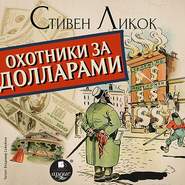По всем вопросам обращайтесь на: info@litportal.ru
(©) 2003-2024.
✖
Winsome Winnie and other New Nonsense Novels
Автор
Год написания книги
2019
Настройки чтения
Размер шрифта
Высота строк
Поля
"'Ah, but afterwards?' said the Bishop.
"'Afterwards,' answered the General, 'why kill him! Knock him on the head and bury him under the cement in the cellar. Hay and I could easily bury him, or for that matter I imagine one could easily use the furnace itself to dispose of him.'
"I must confess that my blood ran cold as I listened.
"'But do you think it right?' objected the Bishop. 'You will say, of course, that it is only killing a plumber; but yet one asks oneself whether it wouldn't be just a leetle bit unjustifiable.'
"'Nonsense,' said the General. 'You remember that last year, when Hay strangled the income tax collector, you yourself were very keen on it.'
"'Ah, that was different,' said the Bishop, 'one felt there that there was an end to serve, but here–'
"'Nonsense,' repeated the General, 'come along and get Hay. He'll make short work of him.'
"I heard their retreating footsteps and then all was still.
"The horror which filled my mind as I sat in the half darkness waiting for their return I cannot describe. My fate appeared sealed and I gave myself up for lost, when presently I heard a light step in the hall and the key turned in the lock.
"The girl stood in front of me. She was trembling with emotion.
"'Quick, quick, Mr. Thornton,' she said. 'I heard all that they said. Oh, I think it's dreadful of them, simply dreadful. Mr. Thornton, I'm really ashamed that Father should act that way.'
"I came out into the hall still half dazed.
"'They've gone over to Admiral Hay's house, there among the trees. That's their lantern. Please, please, don't lose a minute. Do you mind not having a cab? I think really you'd prefer not to wait. And look, won't you please take this?'—she handed me a little packet as she spoke—'this is a piece of pie: you always get that, don't you? and there's a bit of cheese with it, but please run.'
"In another moment I had bounded from the door into the darkness. A wild rush through the darkened streets, and in twenty minutes I was safe back again in my own consulting-room."
Thornton paused in his narrative, and at that moment one of the stewards of the club came and whispered something in his ear.
He rose.
"I'm sorry," he said, with a grave face. "I'm called away; a very old client of mine. Valvular trouble of the worst kind. I doubt if I can do anything, but I must at least go. Please don't let me break up your evening, however."
With a courtly bow he left us.
"And do you know the sequel to Thornton's story?" asked Fortescue with a smile.
We looked expectantly at him.
"Why, he married the girl," explained Fortescue. "You see, he had to go back to her house for his wrench. One always does."
"Of course," we exclaimed.
"In fact he went three times; and the last time he asked the girl to marry him and she said 'yes.' He took her out of her surroundings[**missing comma?] had her educated at a cooking school, and had her given lessons on the parlour organ. She's Mrs. Thornton now."
"And the Bishop?" asked some one.
"Oh, Thornton looked after him. He got him a position heating furnaces in the synagogues. He worked at it till he died a few years ago. They say that once he got the trick of it he took the greatest delight in it. Well, I must go too. Good night."
VII
THE BLUE AND THE GREY A PRE-WAR WAR STORY
(The title is selected for its originality. A set of seventy-five maps will be supplied to any reader free for seventy-five cents. This offer is only open till it is closed)
CHAPTER I
The scene was a striking one. It was night. Never had the Mississippi presented a more remarkable appearance. Broad bayous, swollen beyond our powers of description, swirled to and fro in the darkness under trees garlanded with Spanish moss. All moss other than Spanish had been swept away by the angry flood of the river.
Eggleston Lee Carey Randolph, a young Virginian, captain of the –th company of the –th regiment of –'s brigade—even this is more than we ought to say, and is hard to pronounce—attached to the Army of the Tennessee, struggled in vain with the swollen waters. At times he sank. At other times he went up.
In the intervals he wondered whether it would ever be possible for him to rejoin the particular platoon of the particular regiment to which he belonged, and of which's whereabouts (not having the volume of the army record at hand) he was in ignorance. In the intervals, also, he reflected on his past life to a sufficient extent to give the reader a more or less workable idea as to who and to what he was. His father, the old grey-haired Virginian aristocrat, he could see him still. "Take this sword, Eggleston," he had said, "use it for the State; never for anything else: don't cut string with it or open tin cans. Never sheathe it till the soil of Virginia is free. Keep it bright, my boy: oil it every now and then, and you'll find it an A 1 sword."
Did Eggleston think, too, in his dire peril of another—younger than his father and fairer? Necessarily, he did. "Go, Eggleston!" she had exclaimed, as they said farewell under the portico of his father's house where she was visiting, "it is your duty. But mine lies elsewhere. I cannot forget that I am a Northern girl. I must return at once to my people in Pennsylvania. Oh, Egg, when will this cruel war end?"
So had the lovers parted.
Meanwhile—while Eggleston is going up and down for the third time, which is of course the last—suppose we leave him, and turn to consider the general position of the Confederacy. All right: suppose we do.
CHAPTER II
At this date the Confederate Army of the Tennessee was extended in a line with its right resting on the Tennessee and its left resting on the Mississippi. Its rear rested on the rugged stone hills of the Chickasaba range, while its front rested on the marshes and bayous of the Yazoo. Having thus—as far as we understand military matters—both its flanks covered and its rear protected, its position was one which we ourselves consider very comfortable.
It was thus in an admirable situation for holding a review or for discussing the Constitution of the United States in reference to the right of secession.
The following generals rode up and down in front of the army, namely, Mr. A. P. Hill, Mr. Longstreet, and Mr. Joseph Johnston. All these three celebrated men are thus presented to our readers at one and the same time without extra charge.
But who is this tall, commanding figure who rides beside them, his head bent as if listening to what they are saying (he really isn't) while his eye alternately flashes with animation or softens to its natural melancholy? (In fact, we can only compare it to an electric light bulb with the power gone wrong.) Who is it? It is Jefferson C. Davis, President, as our readers will be gratified to learn, of the Confederate States.
It being a fine day and altogether suitable for the purpose, General Longstreet reined in his prancing black charger (during this distressed period all the horses in both armies were charged: there was no other way to pay for them), and in a few terse words, about three pages, gave his views on the Constitution of the United States.
Jefferson Davis, standing up in his stirrups, delivered a stirring harangue, about six columns, on the powers of the Supreme Court, admirably calculated to rouse the soldiers to frenzy. After which General A. P. Hill offered a short address, soldier-like and to the point, on the fundamental principles of international law, which inflamed the army to the highest pitch.
At this moment an officer approached the President, saluted and stood rigidly at attention. Davis, with that nice punctilio which marked the Southern army, returned the salute.
"Do you speak first?" he said, "or did I?"
"Let me," said the officer. "Your Excellency," he continued, "a young Virginian officer has just been fished out of the Mississippi."
Davis's eye flashed. "Good!" he said. "Look and see if there are many more," and then he added with a touch of melancholy, "The South needs them: fish them all out. Bring this one here."
Eggleston Lee Carey Randolph, still dripping from the waters of the bayou, was led by the faithful negroes who had rescued him before the generals. Davis, who kept every thread of the vast panorama of the war in his intricate brain, eyed him keenly and directed a few searching questions to him, such as: "Who are you? Where are you? What day of the week is it? How much is nine times twelve?" and so forth. Satisfied with Eggleston's answers, Davis sat in thought a moment, and then continued:
"I am anxious to send some one through the entire line of the Confederate armies in such a way that he will be present at all the great battles and end up at the battle of Gettysburg. Can you do it?"
Randolph looked at his chief with a flush of pride.
"I can."
Другие электронные книги автора Стивен Батлер Ликок
Другие аудиокниги автора Стивен Батлер Ликок
Рассказы




 4.67
4.67













